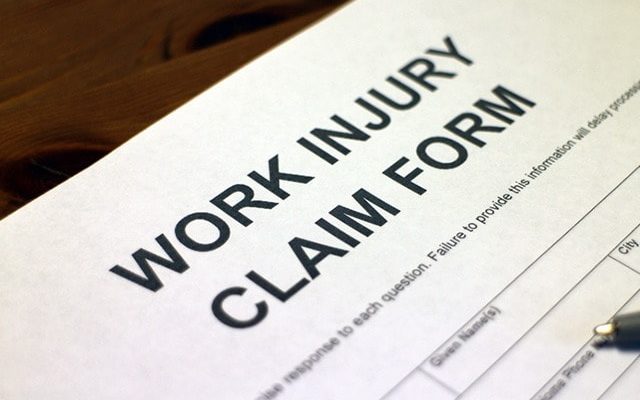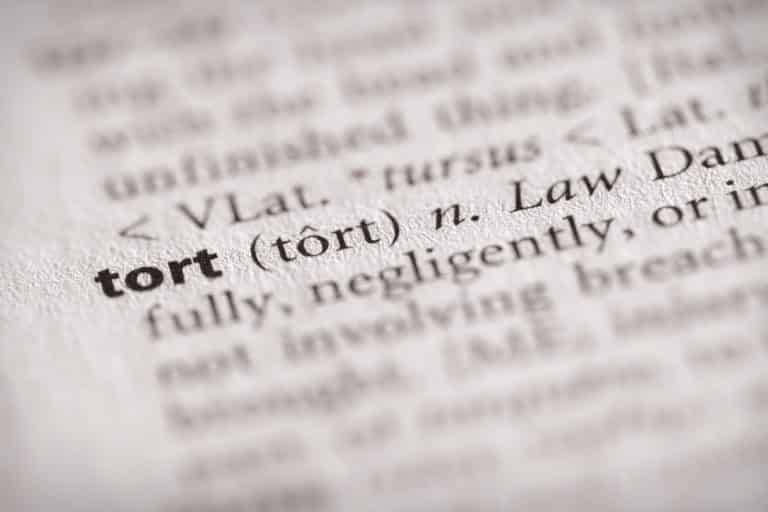No one plans on getting hurt at work. Whether you’re injured in an accident or you develop an illness over a period of time, a work-related injury can be difficult for you and your family. You count on the workers’ compensation system for no-hassle payments of your medical treatment, missed work and other damages. But what happens when workers’ compensation does not cover damages? Our Las Vegas workers’ compensation attorneys explain here.

START YOUR FREE CONSULTATION
NO FEES UNLESS WE WIN!
Call (702) 382-0000 for a free consultation
Options to Pursue Compensation
When workers’ compensation does not cover damages, there are things that you can do to pursue compensation. First, you can appeal your workers’ compensation case. You can also explore a third-party tort claim or a traditional legal claim against your employer if you qualify.
In addition, when workers’ compensation does not cover damages, you may be able to pursue compensation through Social Security Disability Insurance (SSDI) or Supplemental Security Income (SSI). Understanding the reasons for non-payment can help you follow the right course of action.
Steps to Take When You Are Denied Workers’ Compensation
1. Understand the Reasons That Workers Compensation Isn’t Paying
The first step to take when workers’ compensation does not cover damages is to look at why. There might be something that you can do to correct the situation. For example, it’s vital that you provide the right information about your injuries and medical bills in order to get coverage for your treatment. You may also need to provide detailed wage information to get fair payment for missed work.
If workers’ comp doesn’t pay what you’re expecting, start by looking at what happened and the reasons your workers’ compensation claim was denied. Review correspondence from the insurance company. Ask follow-up questions to try and figure out what happened. If there are reasons that your damages aren’t covered initially, you can take steps to counter or correct those reasons.
Related: What Are Common Situations Where Someone Might Qualify for Workers’ Compensation?
2. Appeal the Case
If your workers’ comp case does not cover damages when you first file, it may be appropriate to take advantage of appeal rights. You can file internal appeals where you can provide additional information. If these appeals still don’t result in a fair resolution, you can appeal the case to a neutral third party.
It’s essential to be prepared for an appeal by clearly stating why the workers’ comp claim should cover your damages. An experienced attorney for workers’ compensation claims can help you create a strategy for your appeal.
3. Explore a Third-Party Tort Claim
Even if your employer participates in the workers’ compensation system, there may be other liable parties for your injuries. The workers’ comp process applies only to your employer. If there are third parties that were negligent and caused the accident to occur, you may be able to pursue a third-party legal claim against the responsible party.
Most jobs involve some kind of interaction with third parties. Other companies that you do business with can be responsible for negligence actions. To win this kind of case, you must prove the traditional elements of negligence, including a breach of duty, causation between the negligence and your injuries and damages.

A third-party claim may be helpful when workers’ comp does not cover damages because more damages are available in a third-party case than you can typically get from workers’ comp. You can claim pain and suffering through a civil tort claim. A workers’ compensation claim is limited to medical bills, lost wages and loss of use damages. Typically, a third-party case has a broader range of damages available to the victim. Pursuing claims against responsible parties other than your employer can be a good course of action when workers’ comp does not cover damages.
Read More: Common Types of Intentional Torts
4. See if You Qualify for a Tort Claim Against the Employer
In addition to filing a tort claim against any third parties, there are limited circumstances where you may be able to file a tort claim against your employer. This kind of claim is limited. Some conditions must apply to be eligible for this kind of action. However, if the employer doesn’t participate in the workers’ comp system, you may qualify. In addition, if intentional assault or battery occurs, a tort claim may be possible.
A personal injury attorney for workers’ compensation claims can help you understand the laws applicable to your case. If you qualify, a tort claim against the employer can be a good thing to do if workers’ comp does not cover damages. If you are eligible to bring this kind of case, it may allow you to demand additional damages above and beyond what’s allowed by the workers’ comp system.
5. Apply for Disability Payments
Even after your condition has stabilized, you may still not be able to work. There are a few ways that you may qualify to receive permanent disability benefits. These benefits may be paid through the workers’ compensation system. However, it may be beneficial to apply for Supplemental Security Income (SSI) or Social Security Disability Insurance (SSDI). SSDI may provide payments if you have a disability that interferes with performing basic job functions.
There are complex rules that apply to SSDI and SSI payments when workers’ compensation is also involved. It’s important to understand how disability payments may impact the workers’ compensation case. There may be significant changes to medical and wage payments, so it’s crucial to thoroughly understand how the two programs interact. Timing for filing can be critical to ensuring that you receive the best possible resolution and that your damages are covered.
6. Apply for Health and Human Services Assistance
Finally, if your workers’ comp doesn’t cover your damages after exhausting all of these resources, you may apply to your state’s Department of Health and Human Services for assistance. State aid programs may provide cash assistance, food stamps, housing assistance and more. The Department of Health and Human Services sets its own qualifications and standards for these programs.
Attorney for When Workers Comp Does Not Cover Damages
Have you been injured at work? Is your workers’ comp not covering your damages? Our attorneys can help. Contact our Las Vegas law firm for a review of your case.
Call (702) 382-0000 for a free consultation
Adam S. Kutner is a top 100 trial lawyer with 33 years’ experience and expertise that will benefit you
Call us at (702) 382-0000 anytime to schedule a free consultation. We will work to get you the maximum settlement as quickly as possible so you can move forward on your healing journey.
START YOUR FREE CONSULTATION
NO FEES UNLESS WE WIN!
Home visits are available
Call now for details
SE HABLA ESPAÑOL

Adam S. Kutner
PERSONAL INJURY LAWYER
With more than 33 years of experience fighting for victims of personal injury in the Las Vegas Valley, attorney Adam S. Kutner knows his way around the Nevada court system and how to get clients their settlement promptly and trouble-free.














